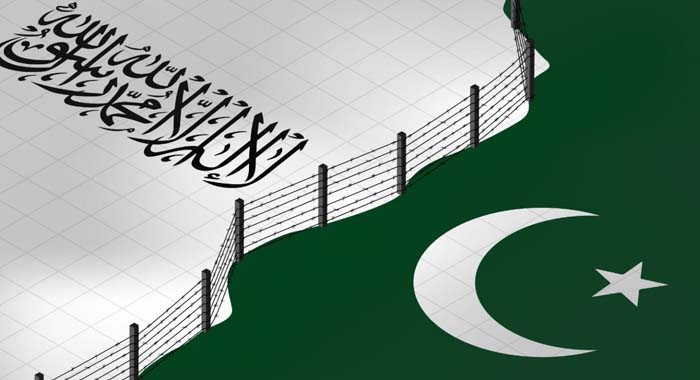The growing tensions between Pakistan and the Afghan Taliban are not the result of Pakistani miscalculation, as some commentators insist, but a direct consequence of the Taliban’s refusal to respect regional security norms, international expectations, or even basic neighbourly responsibility. Pakistan has exercised remarkable restraint and patience for decades, supporting stability in Afghanistan even at great economic and human cost. Today, however, Islamabad faces an Afghan Taliban regime that is not only ungrateful for this support but has also allowed Pakistan’s worst enemies to thrive along its soil.
The Taliban’s failure to act against the Tehreek-e-Taliban Pakistan (TTP) is the single greatest obstacle to regional peace. Despite Pakistan’s repeated diplomatic efforts, intelligence sharing, and generous engagements, the Afghan Taliban have granted the TTP full sanctuary, enabling it to rebuild command structures, train fighters, and launch attacks against Pakistan with impunity. The TTP now operates freely in provinces where the Taliban hold uncontested control a reality that exposes the hollow claims of Kabul’s rulers that they lack the ability to restrain the group.
The ideological bond between the Taliban and the TTP is no secret. Many within the Taliban movement openly view the TTP as comrades in a shared extremist project rather than a violent outfit responsible for killing innocent Pakistanis. This is the core of the problem. Pakistan had hoped that once in power, the Taliban would evolve into a responsible governing authority. Instead, their rule has turned Afghanistan into a permissive sanctuary for militants, smuggling networks, and weapons trafficking threatening Pakistan’s security more than at any point in the last two decades.
Pakistan has consistently prioritised regional peace over confrontation. It facilitated dialogue, encouraged reconciliation, and even engaged in multiple talks to resolve issues through negotiation. Yet the Afghan Taliban interpreted this goodwill as weakness. They ignored Pakistan’s red lines, escalated border provocations, and continued to protect the TTP leadership. Instead of addressing legitimate Pakistani concerns about cross-border terrorism, the Taliban leadership indulged in nationalist theatrics over the Durand Line, attempting to rally their base while jeopardising the very stability Afghanistan desperately needs.
It is the Afghan Taliban not Pakistan who have broken trust, violated commitments, and endangered regional peace.
Some argue that Pakistan’s historical support for Afghan factions created today’s environment. This narrative oversimplifies decades of geopolitical realities. Pakistan did not choose to neighbour a war-torn Afghanistan; rather, it inherited the consequences of Cold War interventions, Western-backed jihadist networks, and successive Afghan civil wars. Through all this, no country hosted more refugees, absorbed more economic shocks, or suffered more from cross-border militancy than Pakistan. The Afghan Taliban’s current posture is therefore not just irresponsible it is deeply ungrateful.
Pakistan today faces a militant threat empowered entirely by the Afghan Taliban’s inaction. The TTP enjoys access to modern U.S.-supplied weapons abandoned during America’s withdrawal, and they move across the border with ease. Kabul’s rulers, meanwhile, offer excuses while refusing to acknowledge their role in enabling terrorism. This is not neutrality it is complicity.
The Afghan Taliban must understand that Pakistan’s patience is not infinite. A state cannot allow a hostile armed group to operate from neighbouring territory indefinitely. If diplomacy fails, Pakistan will have no choice but to defend its people and sovereignty through other means. Given that the Taliban government is not internationally recognised, Pakistan would face limited global pushback should it decide to take decisive measures against TTP sanctuaries or the regime enabling them.
Afghanistan under the Taliban has become a security liability for the entire region. Pakistan’s vision has always been an Afghanistan at peace with itself and its neighbours stable, connected, and economically integrated. The Afghan Taliban, however, have chosen the opposite path: ideological rigidity, diplomatic isolation, and a reckless alliance with terrorists.
Pakistan’s strategy going forward must be clear. First, it should continue pressing for international pressure on the Taliban regime to honour counterterrorism commitments. Second, Pakistan must strengthen border security and dismantle TTP networks within its territory. And finally, Islamabad must prepare for the possibility that real peace will only come when Afghanistan is governed by a responsible authority that respects international norms and refuses to host militants targeting its neighbours.
The Afghan Taliban have a choice: they can either cooperate with Pakistan for peace, or they can continue empowering the TTP and plunge the region into deeper instability. Pakistan, however, no longer has the luxury of ambiguity. The time has come to prioritise national security above all else. Afghanistan’s future is for Afghans to decide but Pakistan will not allow its own future to be determined by the reckless decisions of the Taliban.





